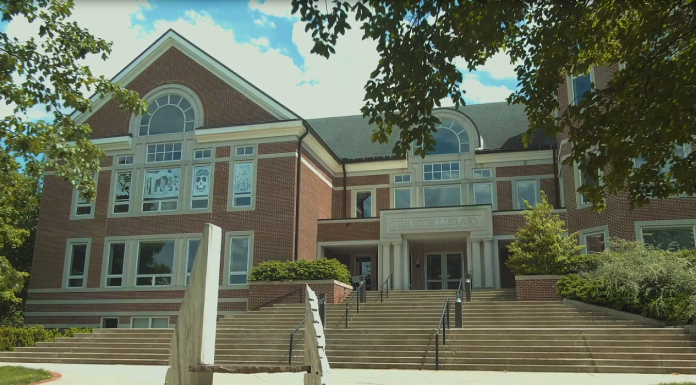A small college in Lancaster, Pa., was reacting to criticism after it hosted an event claiming to educate about white supremacy, while pointedly excluding white people from attending, the College Fix reported.
“The programming for this event is for participants who identify as individuals of color,” said a website promoting the event at Elizabethtown College.
Event participants received a copy of Mediocre: The Dangerous Legacy of White Male America by Ijeoma Oluo and were encouraged to “engage in reflective exercises around the text and their own experiences,” said a description on the site.
Event organizers said the event will be repeated on Oct. 21 and Nov. 2 at the college’s High Library Conference Room.
Elizabeth College was recently in the spotlight for canceling a meeting of the conservative group Turning Point USA that highlighted the dangers of Critical Race Theory.
INSANE:
Elizabethtown College’s Director of Diversity Nichole Gonzalez just canceled my speech for the @TPUSA chapter there
She claims that TPUSA causes “disruption” in the college and also claims I’m not qualified to talk about CRT because I’m not a “critical race theorist”
— Joe Basrawi (@JoeBasrawi) September 23, 2021
The college administration told Joe Basrawi of Turning Point that “the event would have to be cancelled and relocate off campus,” and requested he not mention any affiliation with the college for the event, according to conservative reporter Sara Carter.
“We’re going to do the event no matter what,” Basrawi said. “I’m doing it for the students. So they can learn something on campus.”
Elizabeth College has a total enrollment of a little over 1,800 students and is 86.1% white with a ranking of 3,223 out of 3,790 schools on College Factual’s diversity scale.
Elizabethtown humanities professor Paul Gottfried blasted the culture of the school in 2017, warning that while the faculty and students were largely left-leaning Democrats, the politically correct atmosphere at the college and emphasis on diversity were bringing “declining benefits” for a school that was once unique.
“If someone wants safe spaces for LGBT or intends to march against ‘white privilege,’ why choose an expensive college that’s unknown to people outside our region?” Gottfried concluded.

